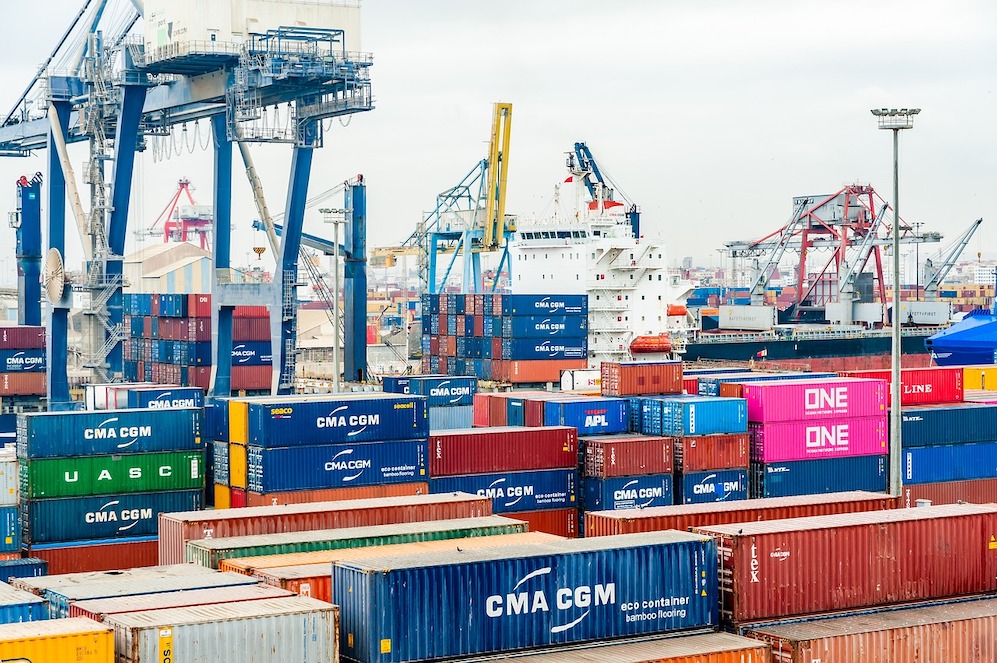How do companies benefit from end-to-end Supply Chain Visibility?
Ralf Boelicke: In the course of globalization, supply chains have expanded across continents, thus increasing the complexity of networks. Supply Chain Visibility enables companies to create transparency across all levels and processes of the value chain, from the supplier of raw materials to the end customer. Advancing digitalization and the continuous analysis of supply chain data are crucial for identifying trends, predicting fluctuations in demand and optimizing supply chain performance. Companies that invest in SCV strategies can gain a significant competitive advantage by becoming more efficient and responsive than the competition. End-to-end Supply Chain Visibility increases planning accuracy, resulting in optimized inventory management, on-time delivery, faster time-to-market and, last but not least, better customer service.
How does Supply Chain Visibility work in particular?
Ralf Boelicke: The realization of SCV requires the strategic implementation of advanced information and communication technologies to seamlessly integrate and analyze data from various sources along the supply chain, including suppliers, logistics, production and distribution. This data integration enables real-time insights into the status of inventory, orders and deliveries and promotes collaboration between stakeholders.
One key element, for example, is the Internet of Things, which uses RFID tags and GPS tracking to provide precise information about the physical condition of goods and their movements. By using Advanced Analytics or business intelligence tools, for example, useful insights can then be gained from the collected data.
How can companies measure the success of their SCV initiatives?
Ralf Boelicke: There are various KPIs that companies can use to measure the success of their SCV efforts, such as an improvement in delivery punctuality, a reduction in stock levels, an increase in transparency or customer satisfaction. The SCOR model metrics (SCOR = Supply Chain Operation Reference) such as reliability, responsiveness, agility and costs are particularly important in this context. Advanced performance indicators include, for example, time-to-recovery (TTR) in the event of disruptions, the Perfect Order Index (POI), which measures the accuracy of orders, or IDOS (Inventory Days of Supply), which evaluates the efficiency of inventory management.
Can SCV improve risk management?
Ralf Boelicke: In the context of risk management, companies can carry out vulnerability assessments and develop risk mitigation strategies using end-to-end SCV. The analysis of real-time data makes it possible to identify potential disruptions such as delivery delays or quality problems at an early stage. One advanced concept within the SCV strategy, for example, is the digital twin, a virtual representation of the physical supply chain. Digital twins use IoT and AI to perform real-time simulations and analyses that make it possible to identify potential risks, plan preventive maintenance and predict the impact of changes in the supply chain before they are physically implemented. This allows managers to perform scenario analyses and identify the best action strategies to minimize risks and improve the resilience of their supply chain.
How does a comprehensive SCV affect sustainability efforts?
Ralf Boelicke: Companies are under increasing pressure to adopt sustainable practices and fulfill their social and environmental responsibilities. SCV gives them a detailed insight into the environmental impact of supply chain activities. Through real-time data collection using IoT and the application of carbon footprint tracking, for example, emissions along the supply chain can be identified and strategies for CO2 reduction can be implemented based on the three pillars of sustainability (environmental, economic and social). Through the transparent documentation of environmental management practices and the traceability of sustainably sourced materials, SCV also promotes compliance with sustainability certifications such as ISO 14001.
What challenges are associated with the implementation of Supply Chain Visibility?
Ralf Boelicke: The challenges include the integration of heterogeneous systems and data sources, data security, the scalability of solutions and overcoming organizational silos. Investments in technical innovations and the development and expansion of specialist expertise are also required. Adapting to changing market conditions presents companies with the task of continuously evaluating and updating their systems.
However, given the great potential, there is no question that the future of logistics lies in the further integration of advanced technologies, data quality and analysis. This includes the development of open and collaborative platforms for even broader and deeper visibility. AI and Machine Learning will also be increasingly used for predictions and automated decisions. Companies should keep pace with these developments and are not left to their own devices: As an experienced logistics service provider, we offer advice and support in implementing the necessary tools and continuing to work with Supply Chain Visibility. In an increasingly interconnected and competitive world, SCV is no longer an optional plus, but a necessity for companies that want to be leaders in their market.
Mr. Boelicke, thank you very much for the interview.
You ask – we answer!
Do you have questions for our colleagues at Hermes International or would you like to suggest a topic to the editorial team? In that case, please send us an e-mail to fragen@hermes-supply-chain-blog.com. Your personal data will be processed in accordance with our privacy policy.

Ralf Boelicke, Head of Product & Partner Management at Hermes International

